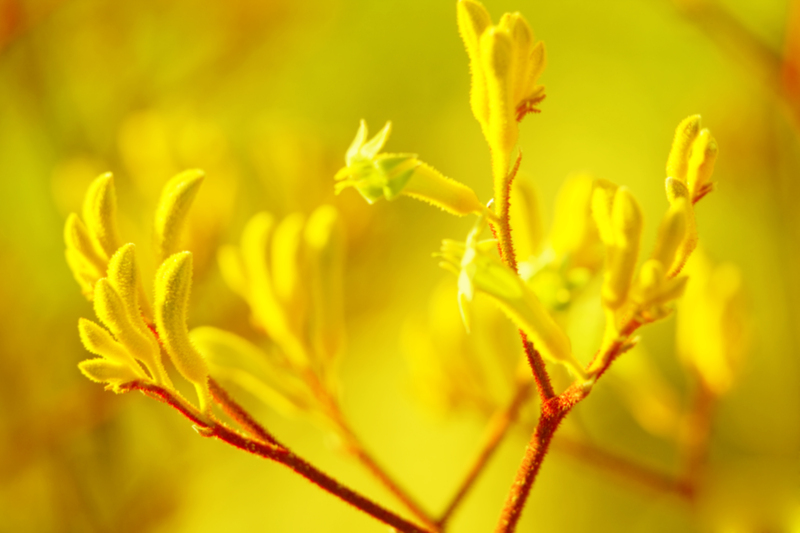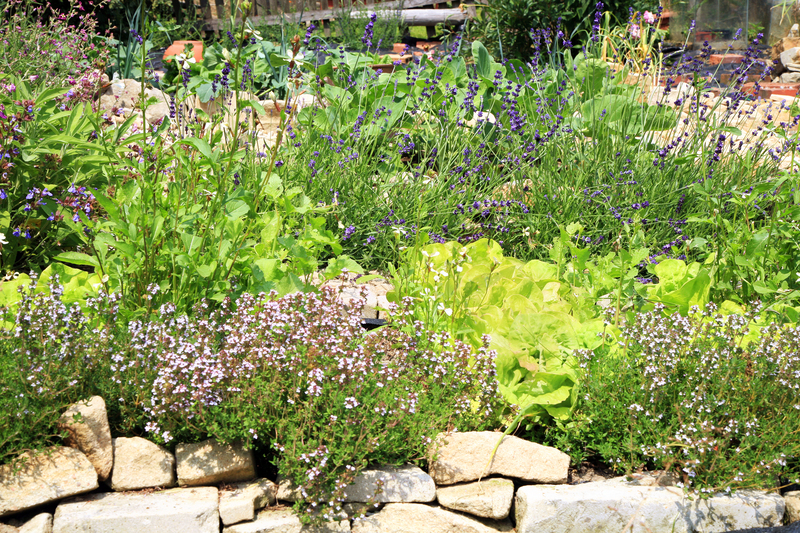Composting Magic: Transforming Waste to Boost Your Garden
Posted on 12/06/2025
Composting Magic: Transforming Waste to Boost Your Garden
Discover the secrets behind composting magic and learn how to efficiently turn everyday waste into nutrient-rich soil that will revitalize and supercharge your garden. In this comprehensive guide, we'll uncover the essential steps, tips, and science behind composting, ensuring your gardening efforts go further and your plants thrive.
What is Composting and Why Is It Magical?
At its core, composting is a natural process that transforms organic waste into a fertile, earthy material known as compost. This process is often dubbed 'gardening magic' because it essentially turns kitchen scraps, yard clippings, and other organic leftovers into garden gold. Composting not only reduces landfill waste but infuses your soil with essential nutrients, improving its structure and fertility.
- Reduces landfill waste
- Boosts soil health
- Improves plant growth and yield
- Minimizes the need for chemical fertilizers
Harnessing the power of composting can make all the difference in your gardening journey, leading to lush blooms, thriving vegetables, and an eco-conscious household.

The Science Behind Composting Waste
Composting might look like magic, but it's rooted in science. The process relies on microorganisms--such as bacteria, fungi, and actinomycetes--that break down organic material. With the right balance of carbon (browns) and nitrogen (greens), air, and moisture, these tiny helpers rapidly decompose waste and create compost.
Key Elements in the Composting Process
- Carbon (Browns): Dried leaves, cardboard, paper, straw
- Nitrogen (Greens): Fruit and vegetable peels, coffee grounds, grass clippings, fresh plant material
- Water: Moisture is necessary to keep the decomposition ticking along
- Oxygen: Regular turning ensures aerobic conditions and prevents foul odors
Achieving the magical balance of greens and browns is essential. Aim for a ratio of about 2:1 (browns to greens) for effective composting.
Types of Composting Methods
Not all composting is created equal. Depending on your space, time, and waste streams, various methods exist to create garden-boosting compost:
1. Backyard Composting
This classic method uses a pile or bin to decompose household and garden waste. With regular turning to aerate and moistening if necessary, you can have rich, dark compost in a few months.
2. Vermicomposting (Worm Composting)
Worms such as red wigglers rapidly break down food scraps, producing valuable worm castings for your garden. Vermicomposting is ideal for those with limited space or wanting to compost indoors.
3. Bokashi Composting
This is an anaerobic (no-air) process using special inoculated bran to ferment food waste, including meat and dairy--items not typically recommended for standard composting. The pre-compost material can be buried in the garden to complete decomposition.
4. Trench Composting
Straightforward and simple, this method involves digging a trench or pit, filling it with organic waste, and covering it with soil. As the waste breaks down underground, it nourishes plant roots directly.
5. Tumbler Composting
Compost tumblers expedite decomposition by making it easy to mix and aerate material. This method yields compost more quickly and is convenient for urban gardeners.
What Can and Can't Be Composted?
The secret to composting success lies in knowing what to toss in your pile--and what to leave out. The right mix creates healthy, odor-free compost, while the wrong items attract pests and pathogens.
Compostable Materials
- Vegetable and fruit scraps
- Coffee grounds and used filters
- Tea bags (ensure they're plastic-free)
- Eggshells
- Yard trimmings and leaves
- Grass clippings
- Shredded newspaper and cardboard
- Wood chips and sawdust (from untreated wood)
- Hair and pet fur (from vegetarian animals)
Items to Avoid
- Meat, fish, and dairy products (unless using bokashi)
- Fats, oils, and greasy food
- Diseased plants
- Weeds with seeds
- Pet waste from meat-eaters
- Inorganic materials (plastic, glass, metal)
- Treated wood or chemical-laden products
Step-by-Step Guide: Creating Your Own Compost
Ready to harness the transformative power of composting? Here's a practical guide to starting your own compost and upgrading your garden soil with home-made magic:
Step 1: Set Up Your Compost Bin or Pile
- Choose a dry, shady spot near a water source for your compost bin or pile.
- If using a container, ensure it has good drainage and airflow.
Step 2: Add Browns and Greens
- Layer brown (carbon-rich) materials: Dried leaves, shredded paper, straw.
- Add green (nitrogen-rich) materials: Kitchen scraps, grass clippings, coffee grounds.
- Alternate layers: For best results, alternate layers of browns and greens.
Step 3: Water and Turn Your Pile
- Keep the compost moist--like a wrung-out sponge--but not soggy.
- Turn your pile every week or two to aerate and speed up decomposition.
Step 4: Monitor and Maintain
- Check for heat: A healthy compost pile will feel warm inside, indicating active decomposition.
- If the pile smells bad, add more browns and turn more frequently.
- If it's dry, add water; if too wet, add more browns.
Step 5: Harvest and Use Your Compost
- In 2-6 months (depending on your method and climate), your compost should be dark brown, crumbly, and earthy-smelling.
- Screen or sift if necessary to remove any undecomposed chunks.
- Apply this "garden gold" to your flower beds, vegetable patches, or even as a top dressing for your lawn.
Composting Magic: Pro Tips for Success
Mastering the art of composting means getting acquainted with a few expert insights for truly magical results:
- Chop or shred: Smaller bits of waste break down more quickly than large chunks.
- Maintain balance: Too many greens can make your pile slimy and smelly; too many browns, and decomposition slows down.
- Use a compost thermometer: Aim for internal temperatures between 135-160?F (57-71?C) for rapid decomposition.
- Cure your compost: Let finished compost sit for a few weeks before using, to fully stabilize nutrients.
- Embrace diversity: The more types of organic material you compost, the richer and more diverse your finished product.
Remember, composting is nature's way of recycling nutrients--and with a little extra care, you can accelerate and enhance the process in your own backyard.
Benefits of Using Compost in Your Garden
The magic doesn't stop with the decomposition; the real rewards appear when you incorporate compost into your garden beds and landscaping projects. Here's how compost works wonders for gardeners:
- Enriches Soil: Provides a slow release of essential nutrients and improves soil structure.
- Boosts Plant Health: Plants rooted in compost-rich soil are more resistant to pests and diseases.
- Retains Moisture: Compost increases the soil's ability to retain water, reducing the need for frequent watering.
- Reduces Erosion: By enhancing the soil's structure, compost helps reduce erosion and runoff.
- Encourages Beneficial Microbes: Compost teems with microbial life that supports healthy plant growth.
- Cuts Down on Chemical Fertilizer: Healthy soil needs fewer synthetic additives, saving you money and reducing environmental impact.
Ultimately, your garden will flourish like never before, producing bigger, healthier, tastier crops and more vibrant flowers--all thanks to your efforts in transforming waste into wealth.
Troubleshooting Common Composting Issues
Even seasoned gardeners encounter hiccups in their composting journey. Here are common problems--and how to transform them with a little composting magic:
- Bad Odors: Often caused by too many greens or poor aeration. Add more browns and turn your pile to fix it.
- Dry Pile: If your compost is not breaking down, add water and greens.
- Slimy or Matted Materials: Break up wet, dense materials and mix with dry browns.
- Attracting Animals: Avoid composting meat, dairy, and oily foods. Cover food scraps with browns.
- Pile Not Heating Up: Add more greens and turn the pile more often or insulate during colder weather.
Innovative Ways to Use Finished Compost
Your finished compost is more than just a soil amendment; it's a supercharged resource for multiple uses around your home and garden:
- Soil amendment for garden beds, containers, and raised beds.
- Lawn top-dressing to revitalize turf and outcompete weeds.
- Mulch to conserve moisture, suppress weeds, and protect plant roots.
- Potting mixes when blended with sand and peat.
- Compost tea: Steep compost in water, strain, and use as a liquid fertilizer.
Sustainability and Environmental Impact of Composting
Composting transforms your approach to waste management by slashing household garbage, reducing methane emissions in landfills, and creating a natural alternative to chemical fertilizers. If adopted widely, composting could dramatically reduce greenhouse gases and help repair soils on a global scale.
- Reduces landfill contributions and greenhouse gas emissions
- Supports sustainable agriculture and local food systems
- Recycles nutrients back into local ecosystems
- Builds community when shared at community gardens or with neighbors

Composting FAQs
How long does it take to make compost?
Depending on method, materials, and care, composting may take anywhere from a few months to a year. Turning the pile, maintaining moisture, and using a balanced mix of greens and browns speeds up the process.
Can I compost in an apartment?
Absolutely! Vermicomposting bins and bokashi systems are compact, odor-free solutions suitable for indoor environments.
Is composting worth the effort?
Yes! Composting not only reduces your household waste but gifts you with a free, high-quality soil amendment that boosts your garden and benefits the planet.
Conclusion: Experience Real Composting Magic
Transforming waste into a garden-boosting resource is both an ancient practice and a modern solution to environmental challenges. Composting is, quite literally, nature's way of recycling--and every gardener can participate in this magical process.
By learning the principles of decomposition, maintaining proper ratios, and tending your pile, you'll reap sustainable rewards that last for generations. Composting magic is real--try it and watch your garden thrive!
Start today, and turn your household waste into a lush, productive oasis. Your soil, your plants, and the planet will thank you!
Latest Posts
Three Foolproof Tips for Successful Weed Management
Tools Every Green Thumb Must Possess
Eco-Friendly Urban Living with Vertical Gardens

